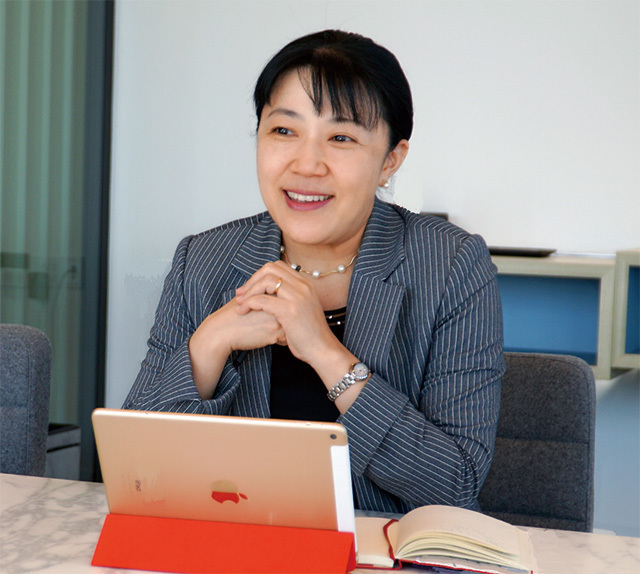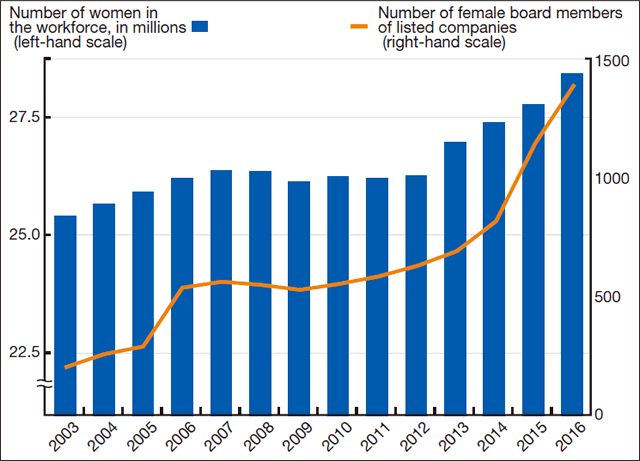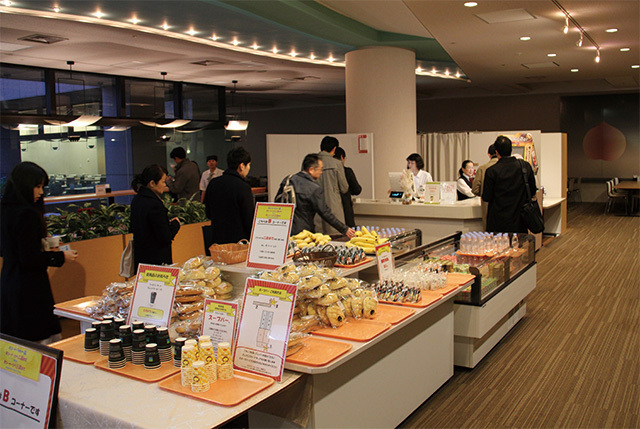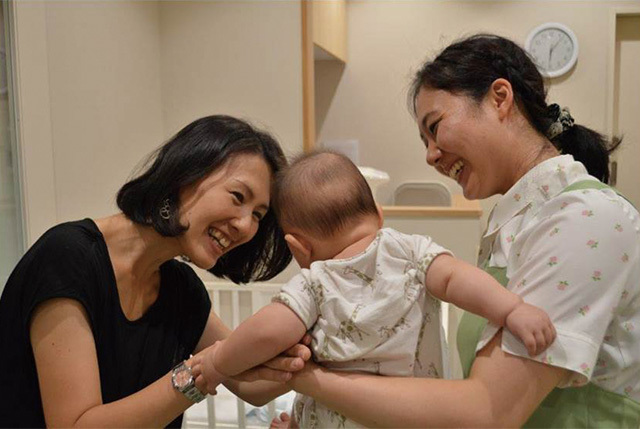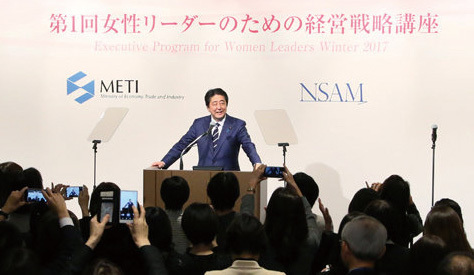Mitsuru Chino
Executive Vice President and Chief Administrative Officer of Itochu International Inc.; Chief Executive Officer and President of Itochu Canada
After working as a partner of an international law firm, Mitsuru Chino joined Itochu Corporation in 2000. There, she was instrumental as in-house counsel and rose to executive officer in 2013. She assumed her current positions in April 2017.
Women’s active participation in the workplace is often discussed from perspectives such as gender equality or the provision of equal employment opportunities. But how often do you hear it mentioned as a source of economic growth and innovation?
One person asserting that “women’s active participation in the workplace truly has a direct bearing on expanding a business and generating profits” is Mitsuru Chino, an executive officer at the major trading company Itochu Corporation.
She observes, “In Japan, women who work in product development have generated a large number of hit products in the automobile and convenience store industries and elsewhere. It goes without saying that half of the people in society are women and that they are important consumers. Women are using various products and proposing what they themselves would like to have, based on those experiences.”
Chino is one of the people driving greater workplace participation by Japanese women, and she points out that during the past twenty years, the number of women in career-track and administrative positions in Japanese corporations has been expanding dramatically. She adds that this increase has heightened women’s consciousness, giving rise to a virtuous circle that expands opportunities for workplace participation even further.
Changes in the number of women in the workforce and of female board members of listed companies
In Japan, the number of women in the workforce grew by 1.5 million people between 2012 and 2016. The number of female board members also doubled during that time.
“As the number of women in the workforce and in executive positions increases, gender consciousness fades, so the significance of that is quite substantial. At Itochu Corporation, we’ve advanced a wide range of measures, such as creating a system by which female employees are paired with more senior female employees who serve as mentors. And recently, the government has also prepared systems and legislation to promote women’s active participation in the workplace. I feel we are seeing the effects of these efforts as well.”
Economic growth through women’s participation in the workplace―that is, “womenomics”―has been one of the government’s priority issues since Prime Minister Abe took office in 2012. Prime Minister Abe has stated, “Women bring to corporate management certain perspectives that only women can provide. Diversified organizations are able to provide society with new types of added value,” and has introduced the quote “If ‘Lehman Brothers’ was ‘Lehman Brothers and Sisters,’ they might still be around” on various occasions. He has also boldly advanced policies that call on private sector employers to establish targets for increasing the number of women in administrative positions as well as policies to eliminate the wait to enter childcare facilities. Moreover, a number of government seminars to foster female executives have been held in various locations around Japan, and there are now plans to expand this seminar program further.
Itochu Corporation introduced a morning-focused working system in 2013. For work performed between 5:00 and 8:00 a.m., extra wages are provided at the same rate paid for late-night work. Breakfast is also provided free of charge to employees who begin work before 8:00 a.m. Since introducing the system, long overtime hours, which had been one of the factors preventing women’s active participation in the workplace, have declined considerably, while net income has increased.
Chino remarked, “The Lehman Brothers story is interesting because it shows in a straightforward way that when people having similar values and perspectives cluster together, once they start to move in the wrong direction, it is difficult for them to set their path right again.”
Prime Minister Abe attended a reception for the Executive Program for Women Leaders, a seminar organized by the government in cooperation with the private sector to foster strategic management, leadership, and other critical skills among female leaders. There he delivered remarks saying Japan aims to increase the number of female board members as an economic policy, not as a social policy, and that by doing so, Japan will be able to realize further growth. (January 2017)
“The reason diversity is important is that new ideas and new values arise when people with different experiences come together, and that improves things,” explained Chino. “Being a woman is in fact a kind of social diversity. Through its start-up visa, points-based system for highly skilled foreign professionals, and other endeavors, the Japanese government is now working to prepare an environment in which non-Japanese find it easy to work in Japan. I think the greatest benefit from these efforts lies in the fact that it will infuse a diversity of experiences into Japan. When we pigeonhole people as men or women or foreigners or elderly people, it becomes difficult to draw out the latent abilities and ideas each individual possesses. An environment in which people are all able to put forth their own various ideas in a neutral setting without regard to their attributes is what will spark innovation in society.”
As the result of various efforts taken by both the government and the private sector, between 2012 and 2016 the number of women in the Japanese workforce grew by 1.5 million, and the number of female board members also doubled. For the same period, earnings by Japanese corporations soared from JPY 48.5 trillion (USD 437 billion) to JPY 75.0 trillion (USD 676 billion) (a 55% increase), while Japan’s GDP surged from JPY 495 trillion (USD 4.5 trillion) to JPY 537 trillion (USD 4.8 trillion) (a 9% increase). However, “womenomics” in Japan has only just begun. Japan will press on with its efforts to realize a society in which all women shine even more brightly.

























